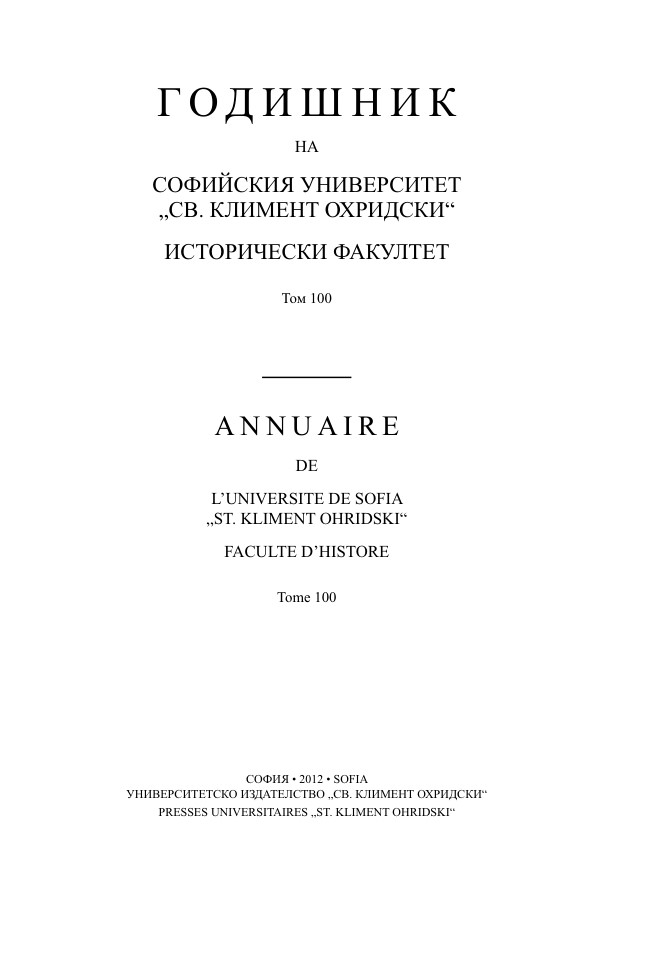Малцинства – търговци в Румелия през ХVІІ–ХVІІІ век
Merchant Minorities in Rumeli in the 17th – 18th Centuries
Author(s): Svetlana IvanovaSubject(s): History, Cultural history, Economic history, Ethnohistory, Modern Age, Special Historiographies:, 17th Century, 18th Century, The Ottoman Empire
Published by: Софийски университет »Св. Климент Охридски«
Keywords: trade; merchants; Rumeli; XVII-XVIII; Ottoman Empire
Summary/Abstract: In 1761 in a berat of a tax farmer of the income from tobacco merchants from Rumeli – Muslim or non-Muslim, raya and askeri-offi cials in “state trade”, were defined as follows: “selling tobacco tücar taifesi either from janissaries or from the other askeri and from bazergân taifesi”. Thus we meet with the affiliation of the Ottoman trade class (bazergân or tücar), with the basic elements of the social structure of the Ottoman Empire (askeri and reaya). However, the sources of that time as well as historiography agree on one additional particularity fact that it was the representatives of ethno-confessional groups – minorities for the region given (Armenian, Greek, Jewish as well as Latin and Dubrovnikan) who had a special place among the merchants in Rumeli. They had some characteristics that were typical for the social positions in the range zimmi – müstemin. They operated in a network together with their compatriots living abroad, which is the precondition` for their signifi cant presence both in local and international trade. In my attempt to reconstruct the real status of these “foreigners of the Islam”, as they were called by F. Braudel, I call such subjects of the sultan “own foreigners of the Empire”.
Journal: Годишник на Софийския университет „Св. Климент Охридски“ – Исторически факултет
- Issue Year: 100/2012
- Issue No: 1
- Page Range: 66-173
- Page Count: 108
- Language: English, Bulgarian

